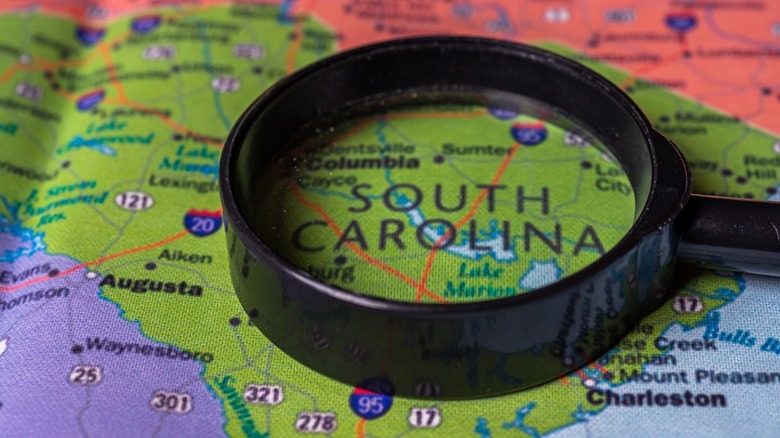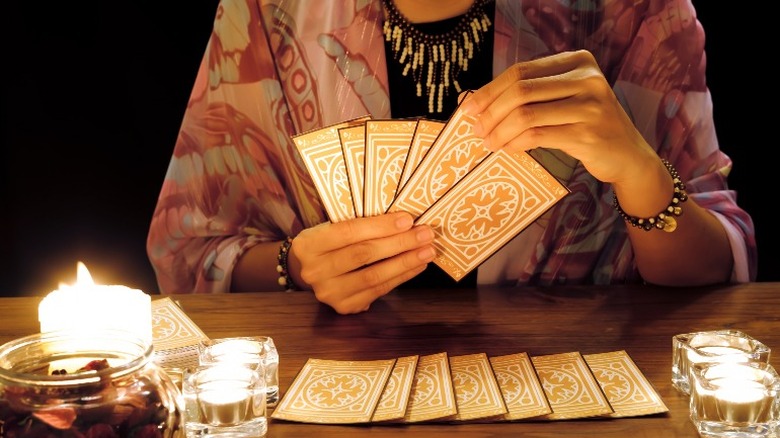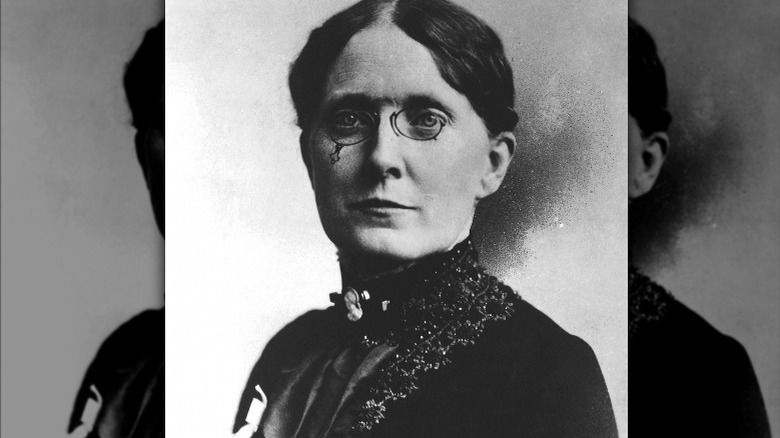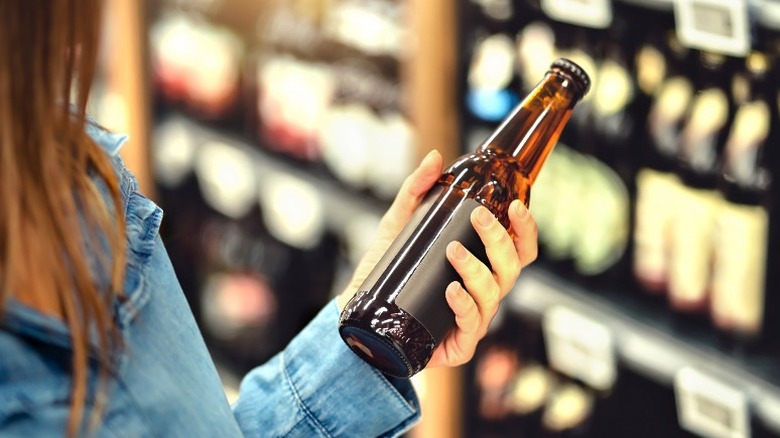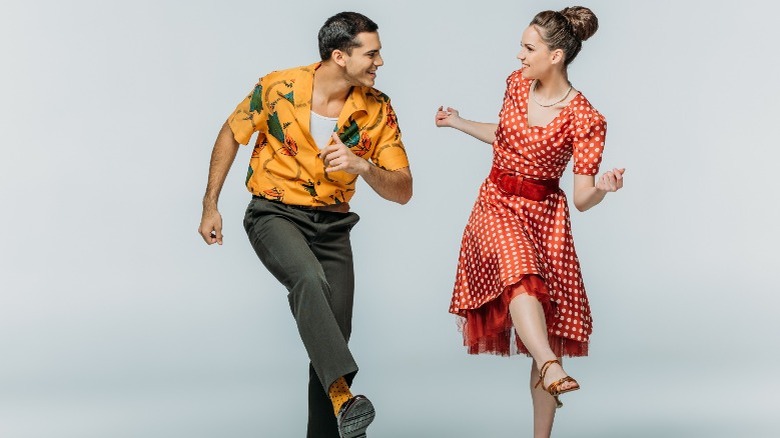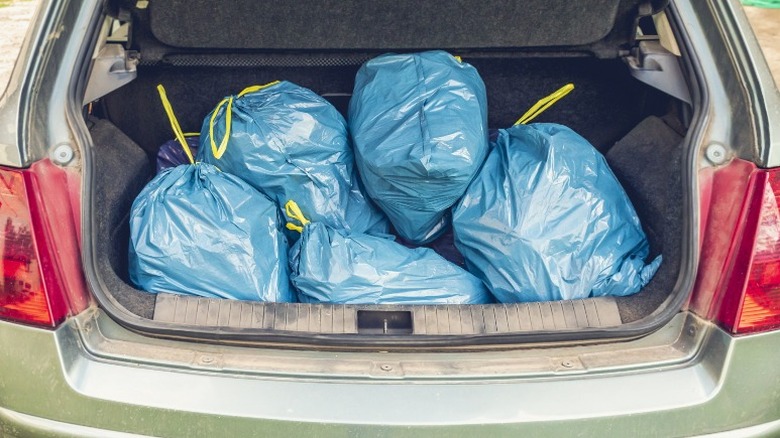Weirdest Laws In South Carolina's State History
If you're planning a trip to the southeastern United States, you definitely shouldn't overlook South Carolina, because this southern state has a lot more to offer than you might think. Whether it's a trip to Caesar's Head State Park to hike and visit the state's largest waterfall or a stay at Hilton Head Island for some golf, you're sure to find something to your liking in South Carolina. This state boasts scenic mountains and beautiful beaches and is a wonderful destination for millions of tourists each year.
And while every state does have its unique charms, each one also has its peculiarities. For a smaller state, South Carolina sure has a lot of weird laws left over from past generations of state lawmakers and local government officials. Let's take a closer look at some of the weirdest laws ever passed in Palmetto State.
No fortune telling without a special license
Statewide, generations of lawmakers have passed thousands of statutes that comprise the code of law for South Carolina. And while most of these laws make a lot of sense, there are a few here and there that will leave you wondering. For example, there is a statewide prohibition on people under the age of 18 playing a pinball machine (via South Carolina Legislature). Another puzzling law requires a person to hold a state-issued permit when firing a missile (per Justia Law).
Thinking about sending an obscene message to your lady friend? Better not. Per SC Code § 16-15-250, sending such a message to another person without their consent is against the law in South Carolina.
Another weird state law centers around fortune-telling. Anyone wanting to do so can legally operate such a business, but they first must obtain a special permit from the state (per South Carolina Legislature).
All hail Francis Willard
There's also a law in South Carolina that requires all public schools to have a program dedicated to Francis Willard Day every year. This same law states that the program is intended to ensure that "the children of the State may be taught the evils of intemperance." In case you weren't aware, Francis Willard was an ardent women's suffragist from the late 19th and early 20th centuries who worked hard in getting women the right to vote. She was also an instrumental part of the temperance movement, which later led to the passage of the 18th Amendment to the U.S. Constitution. If you've forgotten your history, this amendment is what is more commonly referred to as the "Prohibition Amendment."
Railroad companies in the state can also be held liable if their trains or workers spook horses (per Justia Law).
South Carolina is notorious for blue laws
Many states passed "blue laws" years ago, but South Carolina still has quite a few left on the books. These laws were enacted to enforce a biblical day of rest and restricted the sales of certain items or the engagement in selected activities on Sundays. Across the U.S., these blue laws ranged from forcing many businesses to close on this day of the week to regulating what could be consumed. Historically, there were a few workarounds that creative entrepreneurs came up with to skirt these laws, but most folks just had to endure it.
In South Carolina, it wasn't until the year 2006 that bars and restaurants were allowed to sell liquor in anything other than the tiny 50-milliliter bottles. Since then, they've been able to dispense liquor from standard bottle sizes. And while Sunday liquor sales are still prohibited, South Carolina law allows for individual counties to use referendums to legalize the sale of beer and wine in their municipalities (per GVL Today).
There's also an old law here that bars most kinds of work being performed on Sundays, as well as most items being sold on the day of the Christian sabbath. The good news is that there have been efforts to repeal some of the weird laws on the state level by lawmakers in South Carolina. According to Greenville News, 11 laws — ranging from a prohibition on dancing to cohabitation — were considered for repeal in 2016.
No dancing in public
Myrtle Beach itself has a series of weird laws. This community will fine you for sleeping on the beach overnight, as outlined in SC Code of Ordinances § 5-7. What is even weirder, this law applies to public bathrooms that are on the beach, according to SC Code of Ordinances § 5-28.
When nature calls, you'd better find a restroom if you are in a city park in Myrtle Beach. Relieving yourself in the waters of any city park in this town is a violation of the law. And if you own a dog, you are not allowed to take it onto the beach in the summertime during the day, as all animals are barred from the beach during this period of time (via SC Code of Ordinances § 5-13). So if you're taking Fido for a walk, best to avoid the beach until after 5 p.m.
Keep that car clean
The island community of Hilton Head will fine you for creating a public nuisance if your vehicle has too much trash inside of it. This is based on their city code of ordinances, which outline how exterior property needs to be free of trash, debris, and dead animals (via SC Code of Ordinances § 9-1-113). And if you are operating a carriage of any kind, you cannot drive it on city sidewalks, according to SC Code of Ordinances § 12-1-511.
The city of Hilton Head was said to have a law banning the shining of lights upon any sea turtle. And while several online sources have repeated this "law," it turns out that doing so is a violation of federal law (via WBTW13). While that might sound weird, it's in place to protect this species and to ensure that it can breed successfully.
Finally, we come to one of the weirdest laws that are still enforced in South Carolina. In the city of Greenville, you can purchase on the campus of Furman University — except in a select few designated areas, including the campus golf course (per Greenville Journal). With a university that had deep ties with the Southern Baptist Convention until 1992, this school kept with the tradition of having a dry campus. But as off-campus groups have been wanting to use the school for their functions, the powers that be decided to allow for catered events to serve alcohol in certain areas for those attending that are over the age of 21.
